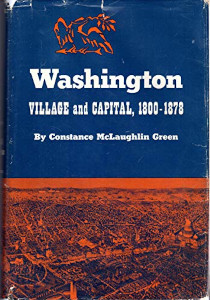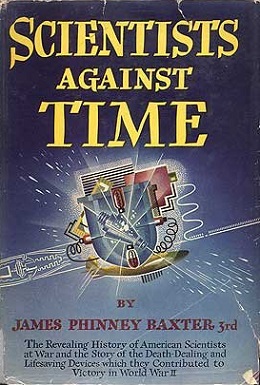
The Pulitzer Prize for Fiction is one of the seven American Pulitzer Prizes that are annually awarded for Letters, Drama, and Music. It recognizes distinguished fiction by an American author, preferably dealing with American life, published during the preceding calendar year.
This article contains information about the literary events and publications of 1962.
The Pulitzer Prizes were first presented on June 4, 1917. The prizes were given for American journalism and literary works published in 1916. Awards were made in four categories; no winner was chosen in five other categories that had been specified in Joseph Pulitzer's bequest. The winners were selected by the Trustees of Columbia University, on advice from juries of appointed experts.

William Henry Holmes, known as W. H. Holmes, was an American explorer, anthropologist, archaeologist, artist, scientific illustrator, cartographer, mountain climber, geologist and museum curator and director.

The Francis Parkman Prize, named after Francis Parkman, is awarded by the Society of American Historians for the best book in American history each year. Its purpose is to promote literary distinction in historical writing. The Society of American Historians is an affiliate of the American Historical Association.
The following are the Pulitzer Prizes for 1967.

Why Marry? is a 1917 play written by American playwright Jesse Lynch Williams. It won the first Pulitzer Prize for Drama in 1918.
Felix Muskett Morley was a Pulitzer Prize-winning journalist and college administrator from the United States.

William McPherson was an American writer and journalist. He is the author of two novels, Testing the Current and To the Sargasso Sea, and many articles, essays, and book reviews. McPherson was awarded the Pulitzer Prize for Distinguished Criticism in 1977.

Washington, Village and Capital: 1800–1878 (1962) is first volume of a two-volume Pulitzer Prize–winning work by American historian Constance McLaughlin Green, tracing the development of Washington, DC, from 1800 to 1878. Green won the 1963 Pulitzer Prize for History for it. Donald H. Mugridge of the Historical Society of Washington, D.C., called the work "the first volume of what is self-evidently the most important general history of the City of Washington, and I have no hesitation in saying the most important contribution to the knowledge of its history, in nearly half a century."
William Harry Goetzmann was an American historian and emeritus professor in the American Studies and American Civilization Programs at the University of Texas at Austin. He attended Yale University as a graduate student and was friends with Tom Wolfe while there. His work on the American West won him the highest prizes for historians, the Parkman Prize and the Pulitzer Prize. He has written and published extensively on American philosophy, American political history, and the American arts. An advocate for the importance of history as a public discussion, he has served in various capacities in television and film production, notably for PBS. He was most recently the Jack S. Blanton Sr. Chair Emeritus in History and American Studies. His last book published during his lifetime was Beyond the Revolution: A History of American Thought From Paine to Pragmatism (2009).

Abraham Lincoln: The War Years encompasses volumes three through six of Carl Sandburg's six-volume biography of Abraham Lincoln; these volumes focus particularly on the American Civil War period. The first two volumes, Abraham Lincoln: The Prairie Years, were published in 1926 and cover the period from Lincoln's birth through his inauguration as president. The final four volumes were published together in 1939, and won the 1940 Pulitzer Prize for History.

Scientists Against Time is a nonfiction history book by James Phinney Baxter III. It was published in 1946 by Little, Brown and Company, and won the 1947 Pulitzer Prize for History.

In the Days of McKinley is a nonfiction history book by Margaret Leech published in 1959 by Harper & Brothers Publishers. It won the 1960 Pulitzer Prize for History. It is a biography of the former American President William McKinley.

James Thomas Berryman was an American political cartoonist who won the 1950 Pulitzer Prize for Editorial Cartooning. Born in Washington, D.C., Berryman was the son of Clifford Berryman, also a Pulitzer Prize-winning cartoonist. The two Berrymans are the only parent-child pair to win Pulitzer Prizes in the same category.
Reveille in Washington, 1860–1865 is a nonfiction history book by American historian Margaret Leech. It won the 1942 Pulitzer Prize for History. After being out of print for years, it was reissued by New York Review Books in 2011 with an introduction by James M. McPherson, author of the Pulitzer Prize-winning book Battle Cry of Freedom (1988).
The Triumphant Empire: Thunder-Clouds Gather in the West 1763-1766 is a book by Lawrence H. Gipson. It won the Pulitzer Prize for History in 1962.
William Mullen is an American journalist, who was a reporter and correspondent for the Chicago Tribune, which he joined in 1967 and retired from in 2012. In 1972, he worked undercover in the Chicago Board of Election Commissioners, uncovering massive evidence of voting irregularities that resulted in 82 election officials being indicted by the federal government. The exposé was awarded the Pulitzer Prize for general local reporting in 1973. In 1975, Mullen and Chicago Tribune photographer Ovie Carter were awarded the Pulitzer for International Reporting for a six-part series on world hunger and famine.
This is an English language bibliography of scholarly books and articles on the American frontier. It is a selection from tens of thousands of titles. See also: Bibliography of the Western United States












